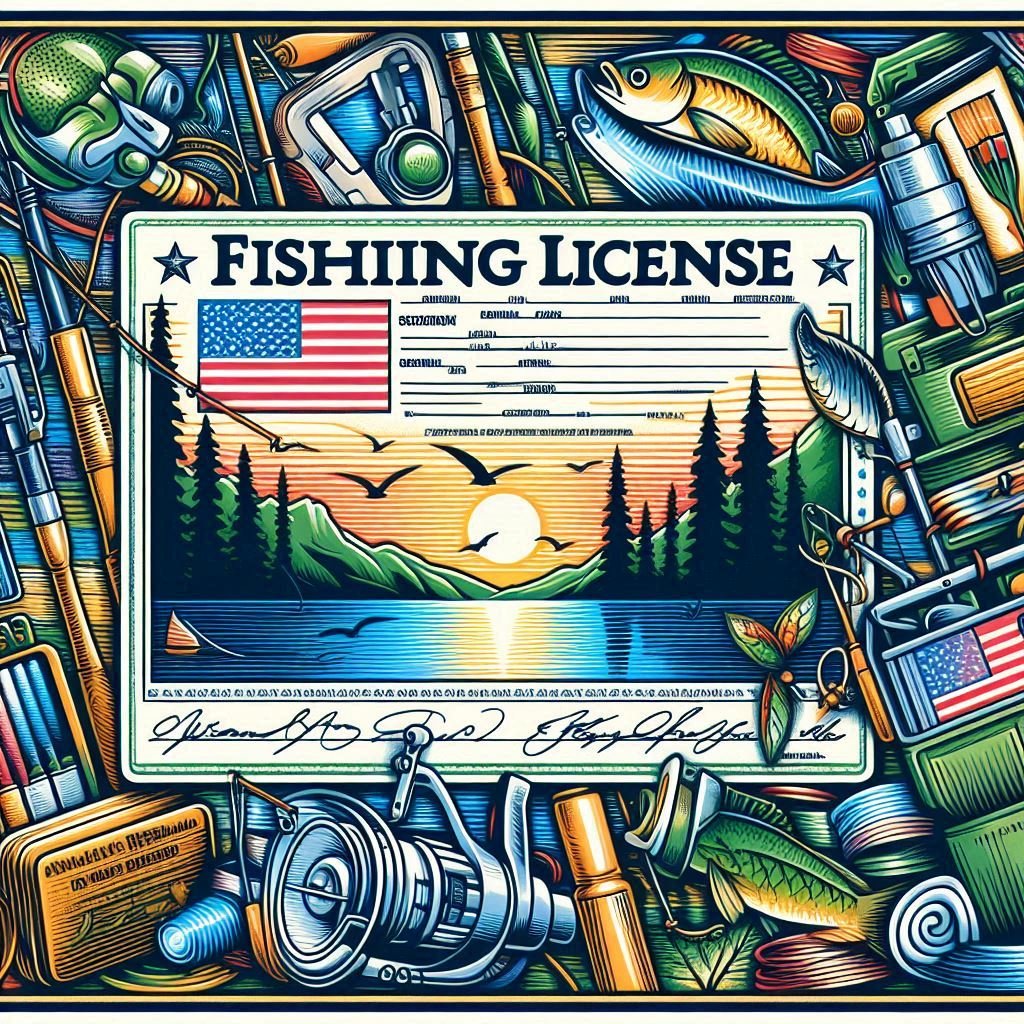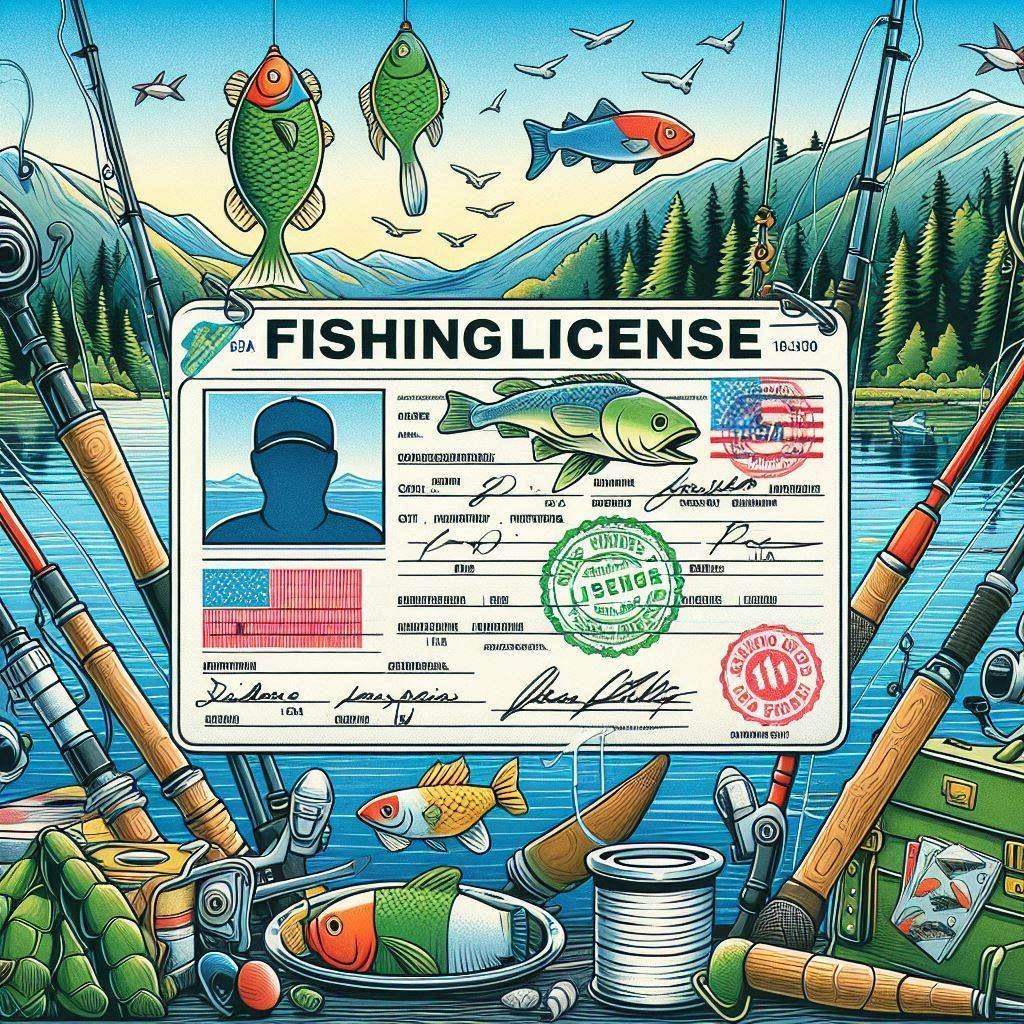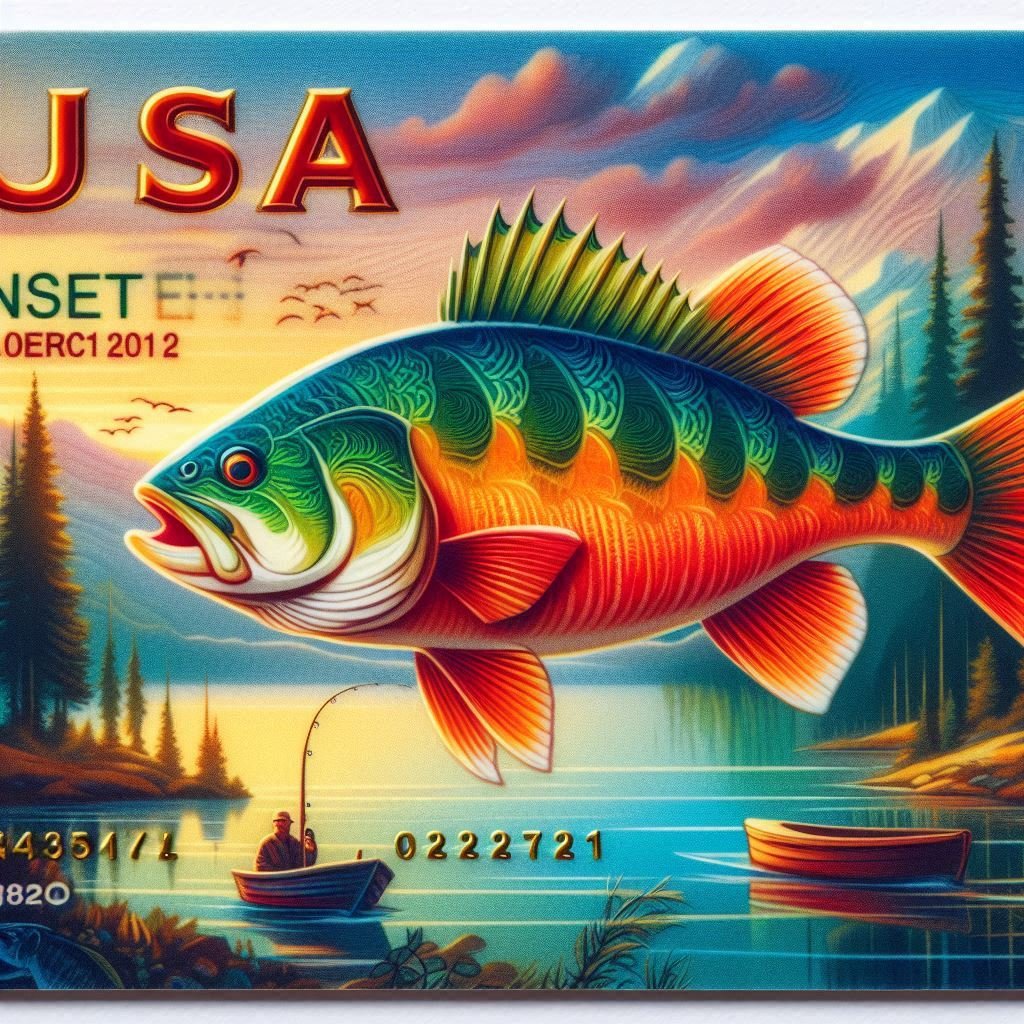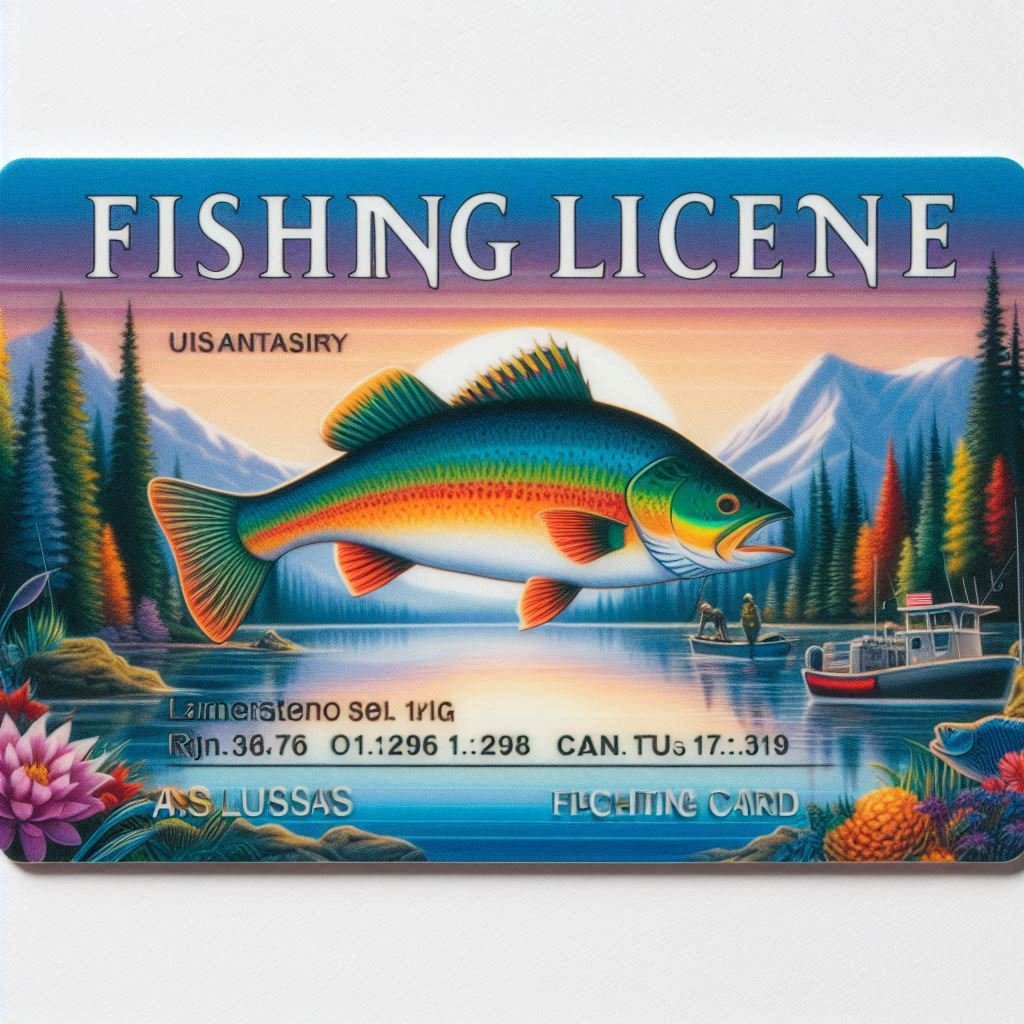If you’re planning to cast your line into the waters of North Carolina, one of the first things you’ll need is a North Carolina fishing license. Whether you’re a resident, a visitor, or a non-resident, understanding the different license types, costs, and the process of obtaining your fishing license is essential for a smooth fishing experience. This comprehensive guide will walk you through everything you need to know about fishing licenses in North Carolina, from costs to requirements, and how to get your license—online and in-person.
How to Get Your North Carolina Fishing License

Key Points
ToggleObtaining a North Carolina fishing license is an easy process, but it’s important to follow the proper steps to ensure you’re fishing legally in the state’s diverse waterways. Here’s a breakdown of how you can get your fishing license, whether you’re a resident or non-resident:
- Visit the Official North Carolina Wildlife Resources Commission Website: You can purchase your fishing license online through the North Carolina Wildlife Resources Commission (NCWRC) official website.
- Select the Type of License You Need: Whether you need a resident fishing license, non-resident fishing license, or a temporary license, make sure to select the correct one. The site will guide you through the available options.
- Provide Required Information: You’ll need to provide your name, address, date of birth, and residency status. You may also need to enter a valid ID number if you’re a resident of North Carolina.
- Choose Your Payment Method: You can pay for your license using a credit or debit card. Once processed, you’ll receive your fishing license via email, and you can print it or keep it digitally on your phone.
- Check for Special Permits: Certain species, like trout or saltwater fish, may require special permits. Make sure to check additional requirements based on the area you intend to fish in.
For those who prefer not to purchase online, you can also visit local vendors or NCWRC-approved retailers to purchase your North Carolina fishing license in person.
Cost of a North Carolina Fishing License

The cost of a North Carolina fishing license depends on a few key factors, including your residency status and the type of fishing you plan to do. Below is an overview of typical costs:
Resident Fishing Licenses
- Annual License: $25.00
- One-Day License: $10.00
- 10-Day License: $16.00
- Lifetime License: Available for $265.00, with reduced rates for seniors (aged 65 or older).
Non-Resident Fishing Licenses
- Annual License: $35.00
- One-Day License: $10.00
- 10-Day License: $30.00
- Saltwater License (for coastal fishing): $15.00 for a 10-day pass or $30.00 for an annual license.
Additional Permits
- Trout Stamp: Required for trout fishing, costs $5.00.
- Coastal Recreational Fishing License: Needed for saltwater fishing, costs $15.00 annually for residents and $30.00 for non-residents.
Remember that all fees go towards supporting wildlife conservation programs across the state, ensuring that North Carolina’s waterways remain vibrant for future generations.
Fishing License Requirements in North Carolina
Understanding the requirements for a North Carolina fishing license is crucial to staying compliant while fishing in the state’s lakes, rivers, and coastlines. Here’s what you need to know:
- Age Requirements: Children under the age of 16 do not need a fishing license. However, they still must follow the same fishing regulations, such as daily bag limits and size limits.
- Residency Status: If you are a resident of North Carolina, you can purchase an in-state fishing license. Non-residents will need to purchase a non-resident license, which costs more than the resident licenses.
- Fishing Area: Different areas of the state require different licenses. Freshwater licenses are valid for fishing in lakes, rivers, and ponds, while saltwater licenses are necessary for coastal and ocean fishing.
- Species: Certain species require additional permits, such as trout stamps for trout fishing. Additionally, some protected species like sturgeon or mussel populations are off-limits, requiring specialized permits or tags to fish.
Benefits of Having a North Carolina Fishing License

Obtaining a North Carolina fishing license brings several benefits, not only ensuring that you are fishing legally but also supporting local wildlife conservation efforts. Here are a few key benefits:
- Legal Access to North Carolina’s Waters: Whether you’re fishing in a river, lake, or the coastline, a fishing license grants you access to the state’s diverse ecosystems.
- Conservation Funding: Your fishing license fees go towards wildlife management programs, fish habitat restoration, and maintaining sustainable fishing practices.
- Fishing for All Ages: With various licenses available for both residents and non-residents, North Carolina ensures that anglers of all types, from casual fishers to dedicated sportsmen, can enjoy the state’s waters.
- Easy Access to Permits: Beyond the license itself, you can easily access specialized permits for trout fishing or saltwater fishing, making it a one-stop shop for all your fishing needs.
How to Maintain Your North Carolina Fishing License
Once you have your North Carolina fishing license, maintaining it is a simple process. Here are a few tips:
- Renew Annually: Your license will expire on the anniversary of the day you purchase it. Make sure to renew it online or in-person before it expires to avoid fines.
- Keep it Accessible: You can print your license or save it on your mobile device for easy access while fishing.
- Check for Special Permits: Depending on where and what you plan to fish, make sure your permits are up-to-date (e.g., saltwater permits or trout stamps).
- Report Violations: If you notice any illegal fishing activities, report them to the North Carolina Wildlife Resources Commission.
Popular Fishing Brands in North Carolina
When gearing up for your fishing trip, you’ll want the best gear to make your experience enjoyable. Here are some popular fishing brands commonly used by North Carolina anglers:
- Shimano: Known for their high-quality fishing rods and reels, Shimano is a go-to brand for both beginners and professionals.
- Penn: Specializing in saltwater fishing gear, Penn provides reliable and durable rods and reels for coastal fishing along the North Carolina coast.
- Daiwa: A well-known brand for affordable yet effective fishing equipment, Daiwa rods and reels are great for freshwater fishing in the state’s lakes and rivers.
- Rapala: Famous for its fishing lures, Rapala offers a variety of options designed for both freshwater and saltwater fishing.
- Berkley: Known for their fishing line and tackle, Berkley is a trusted name for those looking to enhance their fishing experience in North Carolina.
How to Get a North Carolina Non-Resident Fishing License
If you’re visiting North Carolina from out of state and want to fish in the state’s waters, you will need a non-resident fishing license. Here’s how to get one:
- Online Application: You can purchase your non-resident fishing license directly from the North Carolina Wildlife Resources Commission website. Be sure to select the non-resident option when prompted.
- Select Your License Type: Choose whether you want an annual, 10-day, or one-day license. Non-residents can also opt for a saltwater fishing license if they plan to fish along the coast.
- Payment: Pay for your license via credit or debit card. Once the transaction is complete, you will receive your fishing license instantly via email.
- Fishing Regulations: Make sure to familiarize yourself with local fishing regulations, such as size limits and fishing zones, to avoid penalties while fishing.
North Carolina Fishing License Online: A Convenient Option
If you prefer convenience, purchasing your North Carolina fishing license online is a great option. The official NCWRC website allows you to purchase and print your license in just a few minutes. Plus, you can access your license digitally on your phone, eliminating the need for a physical copy. This makes it easy to purchase and access your license no matter where you are.
News About North Carolina Fishing Licenses: Key Updates

North Carolina has been actively updating its fishing license system and policies to make it easier for anglers to enjoy the state’s fishing spots while ensuring sustainable management of aquatic resources. Some exciting updates and news surrounding North Carolina fishing licenses include:
- New Online License System: As of late 2023, the North Carolina Wildlife Resources Commission (NCWRC) launched a revamped online portal for easier access to fishing licenses. The new system not only allows you to purchase your fishing license quickly but also gives you access to a digital version of your license, which you can carry on your smartphone. This move aims to streamline the process and reduce the time spent waiting in line at physical stores or offices.
- Increased Funding for Marine Fisheries: In 2024, North Carolina announced new funding allocations for marine fisheries research and conservation, with part of the funding being sourced from fishing license revenues. The goal is to enhance the health of the state’s aquatic ecosystems and improve the fishing experience for both residents and visitors.
- Fishing License Fee Adjustment: North Carolina introduced small fee increases for non-resident fishing licenses in early 2024. These changes reflect the rising costs of fishery management and support conservation programs that protect the state’s natural resources.
Events Related to North Carolina Fishing Licenses
Several key events related to fishing in North Carolina and fishing licenses occur throughout the year, offering great opportunities for anglers to participate in community activities, tournaments, and conservation efforts:
- North Carolina’s Annual Trout Fishing Season: The annual opening of the trout fishing season is a major event for anglers in North Carolina. While a trout stamp is required for fishing for trout, the season’s opening day is a much-awaited event, often marked by special programs from the NCWRC, including conservation talks, family-friendly fishing activities, and giveaways for new anglers.
- Coastal Conservation Association’s Annual Tournament: Every year, the Coastal Conservation Association (CCA) organizes a fishing tournament along the coast of North Carolina. This event not only promotes fishing but also emphasizes the importance of sustainable fishing practices and the conservation of North Carolina’s marine life. Participants must have the appropriate saltwater fishing license to compete.
- North Carolina Wildlife Expo: The Wildlife Expo hosted by the NCWRC is an event where fishing enthusiasts can gather to learn more about local fishing regulations, conservation efforts, and purchase their North Carolina fishing licenses. It is a great place to meet local anglers, get tips, and stay up-to-date with the latest fishing news and regulations.
Frequently Asked Questions About North Carolina Fishing Licenses
Do I need a fishing license to fish in North Carolina?
Yes, a North Carolina fishing license is required for anyone 16 years of age and older who is fishing in the state’s freshwater and saltwater bodies. Certain exemptions may apply, such as fishing during free fishing days, or for children under 16.
How can I get my North Carolina fishing license online?
To purchase your North Carolina fishing license online, visit the North Carolina Wildlife Resources Commission (NCWRC) website. You can choose from a variety of licenses, such as annual, one-day, or non-resident licenses, and receive your digital license immediately after payment.
What types of fishing licenses are available for North Carolina residents?
North Carolina residents can choose from several types of fishing licenses:
- Annual Resident License: Valid for one year.
- 10-Day License: For short-term anglers.
- Lifetime License: Available for anglers who want permanent access.
Each type is priced differently, with discounts for seniors and youth.
How much does a non-resident fishing license cost in North Carolina?
A non-resident fishing license in North Carolina typically costs between $30 to $50 for an annual license. Short-term licenses, such as a 10-day or one-day license, are available at a reduced cost. Non-residents also need to pay extra for special permits like a saltwater fishing license.
Can I fish in North Carolina with a fishing license from another state?
If you’re from a neighboring state, such as South Carolina or Virginia, you can use your out-of-state fishing license to fish in certain waters of North Carolina. However, if you’re planning to fish in saltwater areas or engage in specialized activities like trout fishing, you will need a North Carolina fishing license or a relevant permit.
Can I buy a county fishing license in North Carolina?
North Carolina does not issue county-specific fishing licenses. Instead, the state issues statewide fishing licenses that allow anglers to fish in all public waters within North Carolina, subject to local regulations. However, some local waters may have specific restrictions or additional rules that require separate permits.
Do I need a fishing license to fish from a boat in North Carolina?
Yes, you still need a fishing license even if you’re fishing from a boat in North Carolina’s lakes, rivers, or coastal waters. The type of license required will depend on where you’re fishing, what species you’re targeting, and whether you’re fishing in freshwater or saltwater.
How long does it take to get a fishing license in North Carolina?
If you’re purchasing your North Carolina fishing license online, you can get it instantly once your payment is processed. It’s then emailed to you as a digital copy. If you buy your license in person, you will receive it immediately.
What should I do if I lose my fishing license?
If you lose your North Carolina fishing license, you can easily replace it by visiting the NCWRC website or contacting an authorized retailer. You’ll need to provide your identification details, and there may be a small fee for a replacement.
Can I use my North Carolina fishing license in other states?
A North Carolina fishing license is only valid within North Carolina. If you plan to fish in neighboring states, you will need to obtain a fishing license specific to those states. Some reciprocal agreements may allow anglers from neighboring states to fish in certain areas, but these rules vary.
Are there any special licenses for fishing in the ocean in North Carolina?
Yes, if you’re fishing in North Carolina’s coastal waters, you’ll need a Coastal Recreational Fishing License (CRFL) in addition to your freshwater fishing license. The CRFL is required for anyone 16 years or older who is fishing in the saltwater of North Carolina.
Share Your Thoughts and Experiences
We’d love to hear about your fishing adventures in North Carolina! Whether you’re an experienced angler or a newcomer to the sport, drop a comment below and share your favorite fishing spots or tips for others. Have you recently purchased your North Carolina fishing license, or do you need help navigating the process? Let us know if you have any questions!
Also, don’t forget to share this guide with your fellow anglers on social media. The more people who know about North Carolina fishing licenses, the better the experience for everyone! Let’s Check Out Indiana Fishing License: The Complete Guide You Need
Ready to fish the waters of North Carolina? Get your fishing license today and join the thousands of anglers enjoying the state’s natural beauty. Visit the NCWRC website to purchase your license online now!
